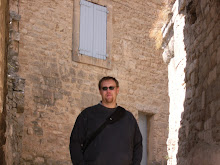 On Christmas…
On Christmas…It seems that the true meaning of Christmas (at least as I see it) has been lost on the general public. Instead of a time of peace and love and generosity towards our fellow companions on this spinning rock in space, we spend money on stuff and bicker about naming Christmas and how saying Christmas might offend someone. Every year the stores role out the Christmas decorations earlier and earlier; some stores had begun setting up their displays in September this year. I think that the commercialization of Christmas misses the whole point of the season. But before I opine on this much beloved holiday of children everywhere we need a history lesson of how it started and look at some its traditions.
A Brief History of the Origin of Christmas
The history of Christmas dates back over 4,000 years. Many Christmas traditions were celebrated centuries before Christ was born. The 12 days of Christmas, the bright fires, the Yule log, the giving of gifts, carnivals with floats, carolers who sing while going from house to house, holiday feasts, and church processions can all be traced back to the early Mesopotamians.
“In the Roman world, Saturnalia (December 17) was a time of merrymaking and exchanging of gifts. December 25 was also regarded as the birth date of the Iranian mystery god Mithra, the Sun of Righteousness. On the Roman New Year (January 1), houses were decorated with greenery and lights, and gifts were given to children and the poor. To these observances were added the German and Celtic Yule rites when the Teutonic tribes penetrated into Gaul, Britain and central Europe. Food and good fellowship, the Yule log and Yule cakes, greenery and fir trees, gifts and greetings all commemorated different aspects of this festive season. Fires and lights, symbols of warmth and lasting life, have always been associated with the winter festival, both pagan and Christian.” (Encyclopedia Britannica, 15th Edit. Vol. II, p. 903)
The exact day of the Christ child's birth has never been pinpointed. Traditions say that it has been celebrated since the year 98 AD. In 137 AD the Bishop of Rome ordered the birthday of the Christ Child celebrated as a solemn feast. In 350 AD another Bishop of Rome, Julius I, choose December 25th as the observance of Christmas. According to researchers of the Christian scriptures, Christ was probably born in the fall instead of the winter. December 25th was most likely not selected because it was the birth of Christ or because it was even near it. It was probably selected because it coincided with pagan festivals such as Saturnalia.
The Brief History of Gift Giving
The idea of Santa Claus developed from stories about a real person named Saint Nicholas. Historians know little for certain about him. He was probably born in Patara, in what is now Turkey. When he was 19 years old, Nicholas became a priest. He later served as bishop of Myra, near Patara. He died during the A.D. 300's.
According to legend, Saint Nicholas once aided a poor nobleman who had three daughters. No men would marry the daughters because the nobleman did not provide any of them with a dowry. Saint Nicholas threw three bags of money through an open window of the nobleman's house to show that the daughters now had dowries. As a result, they were able to marry. The legend of Saint Nicholas as a man who brings gifts may have developed from this story.
The custom of giving gifts on a special day in winter was practiced before Christianity was founded. After Christianity was well established, Saint Nicholas became a symbol of the custom among Christians. During the Reformation of the 1500's, Protestants substituted nonreligious characters for Saint Nicholas. In England, for example, the saint was replaced by a gentleman called Father Christmas.
The Origin of Other Christmas Traditions
In Scandinavia, a period of festivities known as Yule contributed another impetus to celebration, as opposed to spirituality. As winter ended the growing season, the opportunity of enjoying the summer’s bounty encouraged much feasting and merriment. The popular ritual was the burning of the Yule Log, which is strongly embedded in the pagan worship of vegetation and fire, as well as being associated with magical and spiritual powers.
The Celtic culture of the British Isles revered all green plants, but particularly mistletoe and holly. These were important symbols of fertility and were used for decorating their homes and altars.
New Christmas customs appeared in the Middle Ages. The most prominent contribution was the carol, which by the 14th century had become associated with the religious observance of the birth of Christ.
In Italy, a tradition developed for re-enacting the birth of Christ and the construction of scenes of the nativity. This is said to have been introduced by Saint Francis as part of his efforts to bring spiritual knowledge to the laity.
A prominent figure in today's Christmas is Saint Nicholas who for centuries has been honored on December 6th. He was one of the forerunners of Santa Claus.
Legend has it that a 7th century a monk from England, used the triangular shape of the Fir Tree to describe the Holy Trinity of God the Father, Son and Holy Spirit to people in Germany. The converted people began to revere the Fir tree as God's Tree, as they had previously revered the Oak. By the 12th century it was being hung, upside-down, from ceilings at Christmastime in Central Europe, as a symbol of Christianity (It would seem that this tradition is making a come back…so that we can put more presents under the tree!).
The first decorated tree was at Riga in Latvia, in 1510. In the early 16th century, Martin Luther is said to have decorated a small Christmas Tree with candles, to show his children how the stars twinkled through the dark night.
In the mid 16th century, Christmas markets were set up in German towns, to provide everything from gifts, food and more practical things such as a knife grinder to sharpen the knife to carve the Christmas Goose! At these fairs, bakers made shaped gingerbreads and wax ornaments for people to buy as souvenirs of the fair, and take home to hang on their Christmas Trees.
The best record we have is that of a visitor to Strasbourg in 1601. He records a tree decorated with “wafers and golden sugar-twists (barley sugar) and paper flowers of all colors”. The early trees were biblically symbolic of the Paradise Tree in the Garden of Eden. The many food items were symbols of Plenty, the flowers, originally only red (for knowledge) and White (for innocence).
Tinsel was invented in Germany around 1610. At that time real silver was used, and machines were invented which pulled the silver out into the wafer thin strips for tinsel. Silver was durable, but tarnished quickly, especially with candlelight. Silver was used for tinsel right up to the mid-20th century
Why Have We Lost the Meaning of Christmas?
Merchants regularly report that over 60 percent of their annual retail sales occur during the Christmas shopping season. This represents a tremendous amount of gift buying. Most today believe that gift-giving comes from the Bible example of the “three wise men” presenting gifts to Christ. A long-standing, ancient custom of the East was to present gifts when coming before a king. These men understood they were in the presence of the “King of the Jews.” The Bible carries many examples of people sending gifts to kings or presenting them upon arrival into their presence. This custom is common today when ambassadors or others come into the presence of a world leader.
This season leads the entire year in adultery, loneliness, jealousy, drunkenness and drunk driving, family arguments (and worse), and accumulation of debt that often lasts until March. This problem is so significant that almost all churches typically report that their incomes, ironically, drop during this period as people “recover” from all their spending!
Some children expect big presents and become disappointed when they do not get them. There always seems to be ”the present” that every kid wants. It all hit home on Saturday morning after Thanksgiving when I was watching the news reports of the shopping “sales” that began early in the morning the day before. People were falling down and getting trampled in the rush to get the best “deals.” Fights were breaking out because of this. This is what Christmas has become; nothing more than a gluttony festival – harkening back to some of its pagan roots.
Then there is the whole political correctness ridiculousness. Why are we offended when someone says Merry Christmas? Why are we offended by a nativity scene? Why do we spend so much time (and in the case of the ACLU, money) fighting this issue? I used to be a Christian (I will not get into the reasons for my moving away from the faith at this time), but I am not offended by Christmas or a nativity scene. It is part of our history. Instead of rewriting history, as many liberals are apt to do, we should learn the lessons it can teach us. In the case of Christmas there is more than meets the eye because it is a culmination of many cultures and many traditions. What offends me is the blatant disregard for this season and the incessant need for ever increasing political correctness in our culture. The secularists are screaming that it is too religious. The moment you slap Merry Christmas on a store front selling widgets it has already become secularized, don’t you think? Political correctness in this country has become so bad that we are proposing to hide historical paintings and cover up famous sculptures. Don’t get me wrong, I am for being sensitive to a degree, but the moment we turn our backs on history or try to rewrite it we run the risk of repeating it.
Instead of being offended by Christmas or God in the pledge or on our money or the Ten Commandments (good general rules to live by whether you are Christian or a pagan), we should be offended by racism, poverty, homelessness, HIV/AIDS, cancer, battered women and children, and religious extremism (NO, celebrating Christmas is not religious extremism). But those issues would require too much energy to solve, so we wallow in mediocrity and are offended by inconsequential annoyances; much like our politicians who would rather debate the bowl championship series or steroids in baseball instead of rolling up their sleeves and doing something about the deficit.
I like the idea of this holiday. For me it celebrates hope and peace and family. Unfortunately, these things have been lost in the media and in our hearts.
May the holidays be good to you and may you treat others this season as you would like to be treated.
Merry Christmas and Happy New Year!
